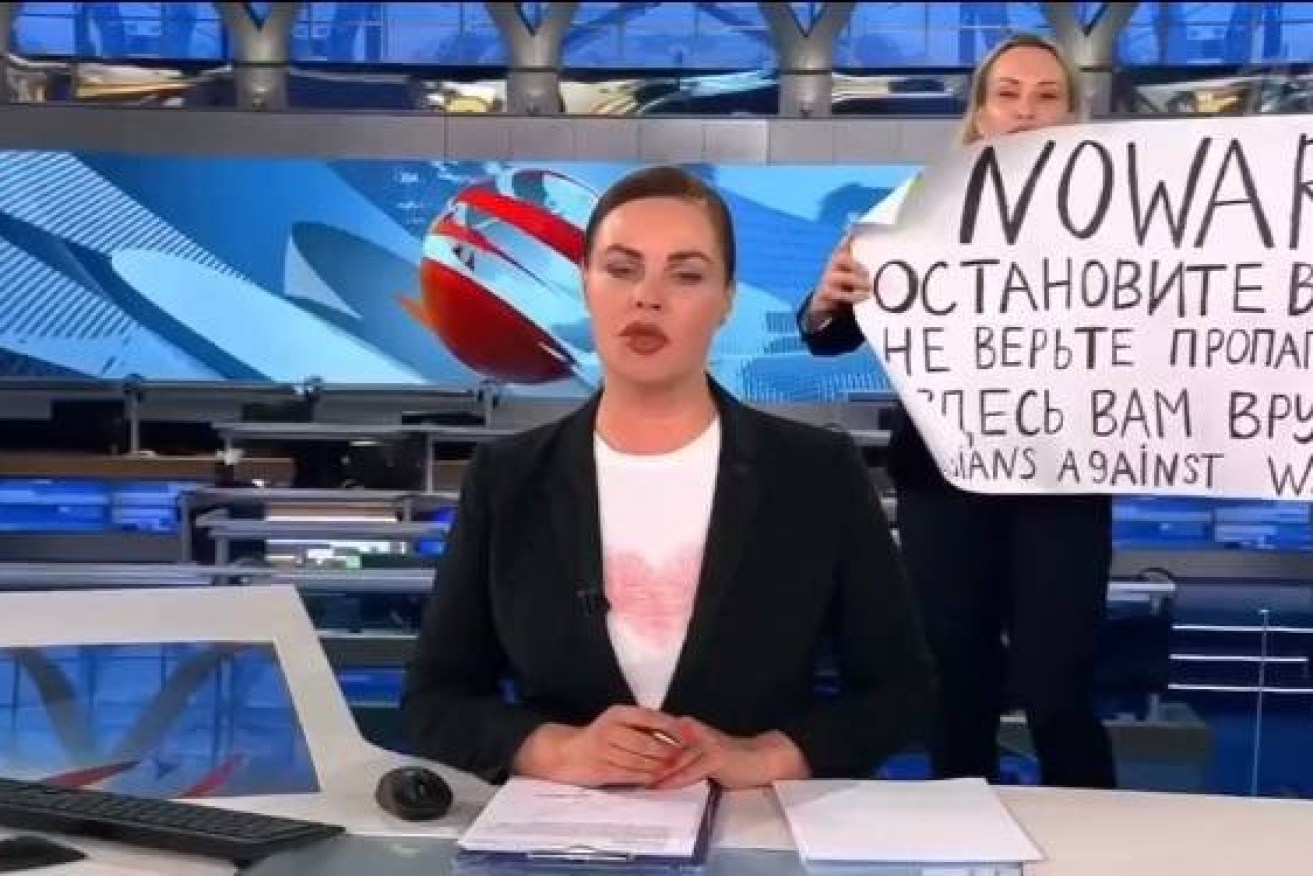UN urges no reprisals against Russian TV anti-war protester

The UN has come out in support of an anti-war protester on Russian TV. Photo: Twitter
The United Nations human rights office has called on Russian authorities to make sure that an anti-war protester who interrupted Channel One television is not punished for exercising her right to free speech.
The Kremlin said on Tuesday that the actions of a woman who interrupted a live news bulletin on Russia’s state TV Channel One on Monday night to denounce the war in Ukraine amounted to “hooliganism”.
Ravina Shamdasani, UN human rights spokesperson told a Geneva news briefing on Tuesday that Russian authorities should ensure that the woman “does not face any reprisals for exercising her right to freedom of expression”.
The protester held up a sign behind a studio presenter reading the news on Channel One on Monday night and shouted slogans condemning Russia’s February 24 invasion of Ukraine.
“As far as this woman is concerned, this is hooliganism,” said Kremlin spokesperson Dmitry Peskov who went on to laud the state channel as a pillar of objective and timely news.
“The channel and those who are supposed to will get to the bottom of this,” he told reporters.

Kremlin spokesman Dmitry Peskov says an anti-war protest on national TV was “hooliganism”. Photo: AP
Officials in Moscow describe Russia’s offensive in Ukraine as a special military operation to disarm the country and prevent “genocide” against Russian-speakers, a justification dismissed by Ukraine and the West as a false and illegal pretext for an invasion of a democratic country.
Almost 15,000 people have been detained across Russia during anti-war protests since February 24, according to a tally kept by OVD-Info, an independent protest-monitoring group.
The protester on state TV was identified as Marina Ovsyannikova, a Channel One employee, according to OVD-Info and the head of the Agora human rights group.
State investigators were looking on Tuesday at whether she could be punished under a new law that carries jail terms of up to 15 years, Russia’s TASS news agency cited a law enforcement source as saying.
The legislation adopted eight days after the invasion of Ukraine makes public actions aimed at discrediting Russia’s army illegal and bans the spread of fake news or the “public dissemination of deliberately false information” about the use of Russia’s armed forces.
-Reuters








